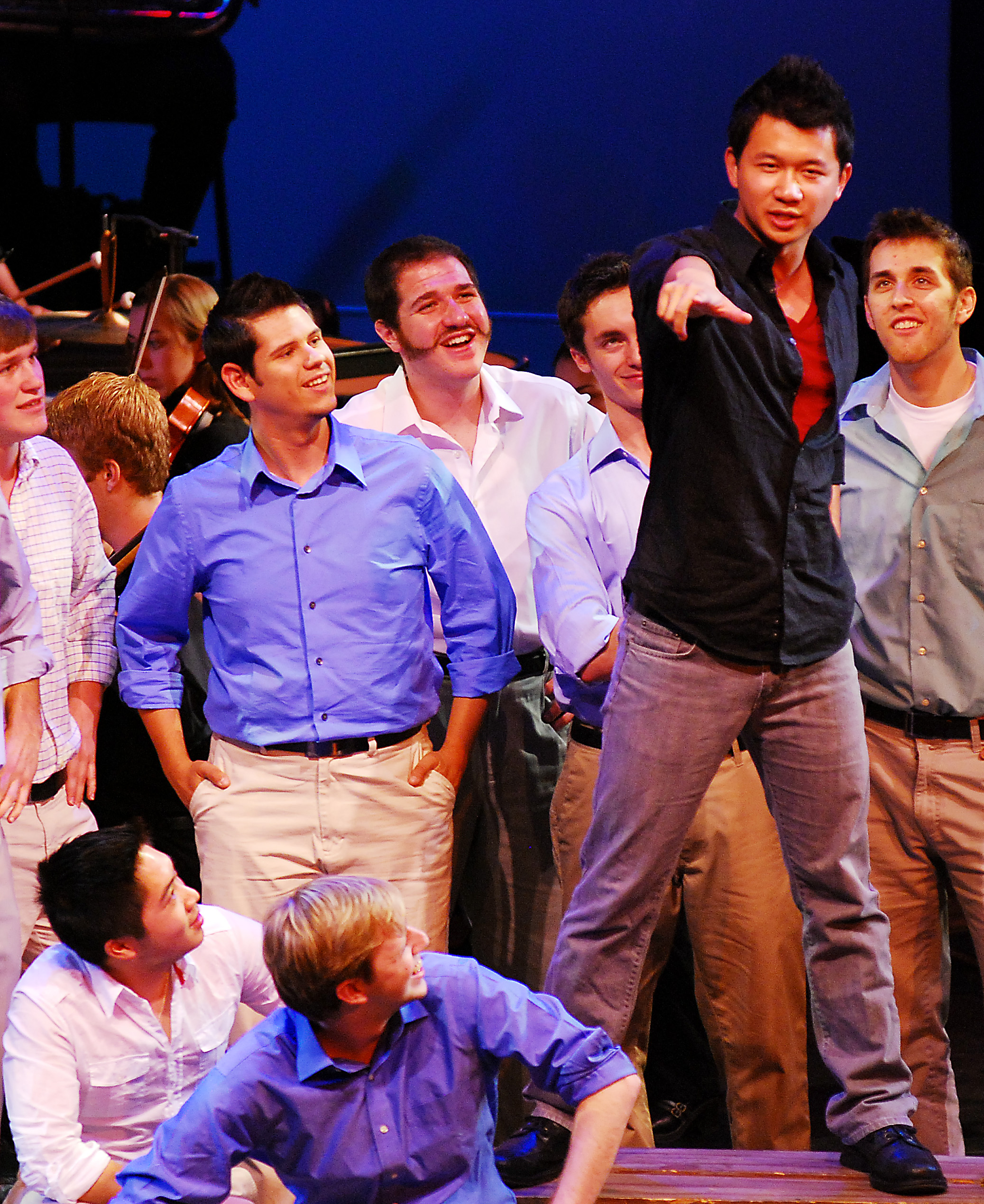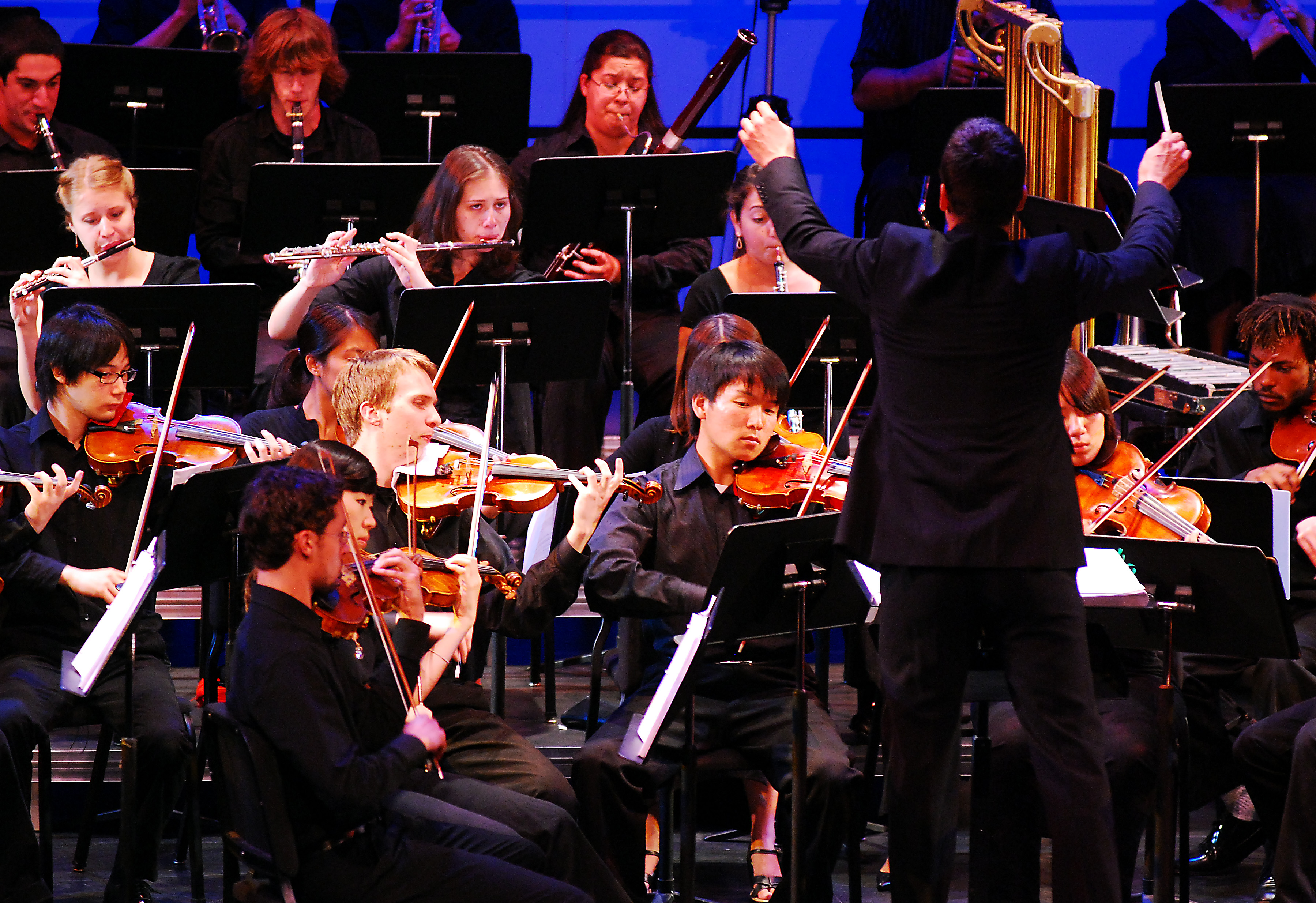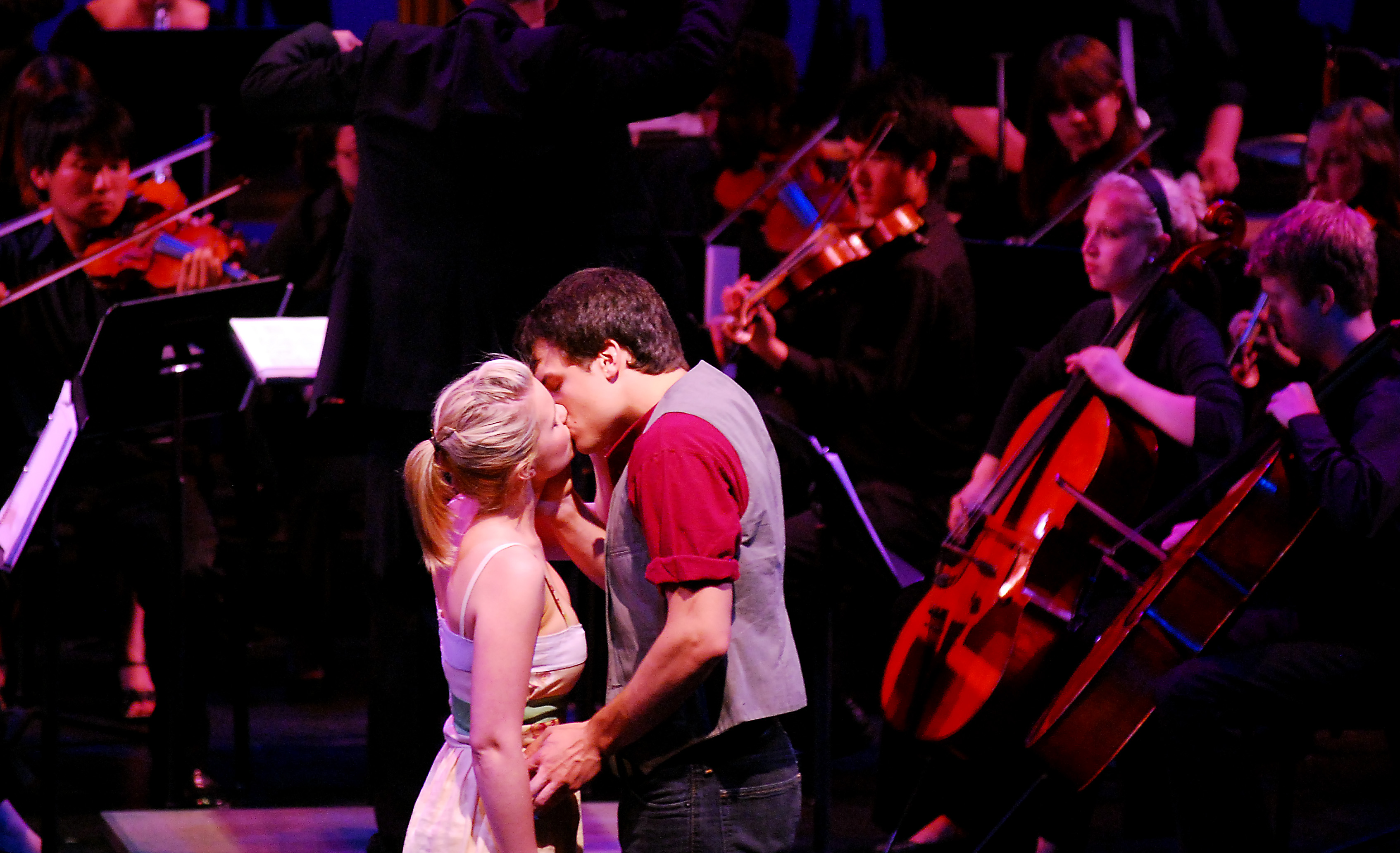

Carousels don’t really bring tragedy to mind. Or love, suicide and unplanned pregnancies, for that matter.
Yet in Rodgers and Hammerstein’s “Carousel,” these issues come to life, kicked into motion by a young couple who meet on ““ surprise, surprise ““ a carousel.
Wednesday and Thursday night in Schoenberg Hall, the UCLA Philharmonia presented the musical under the baton of conductor Scott Dunn and the direction of Peter Kazaras.
Set in the 1870s, the show revolves around Julie Jordan and the rebel she falls in love with, Billy Bigelow. The two fall in love, despite the fact that Billy is unemployed and tends to have a few dangerous friends.
Julie can hardly keep from comparing their marriage to that of her friend, Carrie Pipperidge, and the cheery, slightly naive Mr. Enoch Snow.
When Billy finds out Julie is pregnant, he decides to do all he can to give his child a life he never could attain himself, even if it means commiting unspeakable acts.
Though the plot is overall quite dark, the quirky comic remarks often mixed into the lyrics can lighten the mood with laughter.
From the almost-too-cute scene in which Billy and Julie first profess their feelings toward each other in the song “If I Loved You,” to the entire chorus singing about their “real nice clam bake,” the show leaves a ““ there’s no other word for it ““ delightful impression despite the serious themes. The whole is happier than the sum of the parts.
“It’s interesting because it’s somewhere in between a tragedy and a comedy, so it’s kind of unique,” said Joshua Addison, violin performance graduate student and concertmaster of the production’s orchestra.
“Here’s a musical, and you think of musicals being very light-hearted, but this is more ambiguous.”
Outside of this performance at UCLA, “Carousel” has a history of more than 890 Broadway performances under its belt, accumulated since its opening in 1945. Clearly, it’s got something people want to see.
Joanna Foote, graduate student in music performance, played the character of Julie Jordan in the past nights’ productions.
“It’s probably a little bit behind the times,” said Foote.
“I love the music and everything, and it’s very powerful in the end. I think broad emotions … are relatable to the audience.”
This performance was different from most in the sparseness of its set. A lone bench slightly off-centerstage was the only set piece used for the production, though the performers were in full costume.
This openness on the stage left room for the orchestra ““ the musicians were not in their usual position under the stage in the pit, but on the stage backing the singers and actors.
“I really like having the orchestra onstage because it gives such a full feeling for the sound … and I like watching this sort of production because if there isn’t anything going on onstage, you can watch the orchestra,” said fourth-year performance student Dory Schultz, who played Enoch Snow.
For the orchestra members, being out of the pit means they can actually watch what’s taking place onstage live rather than on tiny monitors underneath the stage. This allows them to be more involved in the action of the performance. However, this positioning requires a different technique while playing.
“We played really quiet,” said Addison. “Like, really, really quiet.”
Addison also said it was difficult to balance the sound of the music because of the number of performers.
“We had a lot of problems with balance, first because our orchestra’s pretty big, and second because the singers (didn’t) have microphones,” he said. However, Addison said being on stage was an added bonus because the musicians were incorporated into the performance.
“We’re sort of part of the scene, and it makes it more of a concert experience for us. We feel more interactive. … A lot of the time, we have our own numbers, and we’re helping to push the story along.”
And along it went, circling through the characters’ convoluted emotions and changing predicaments, just like a carousel.
